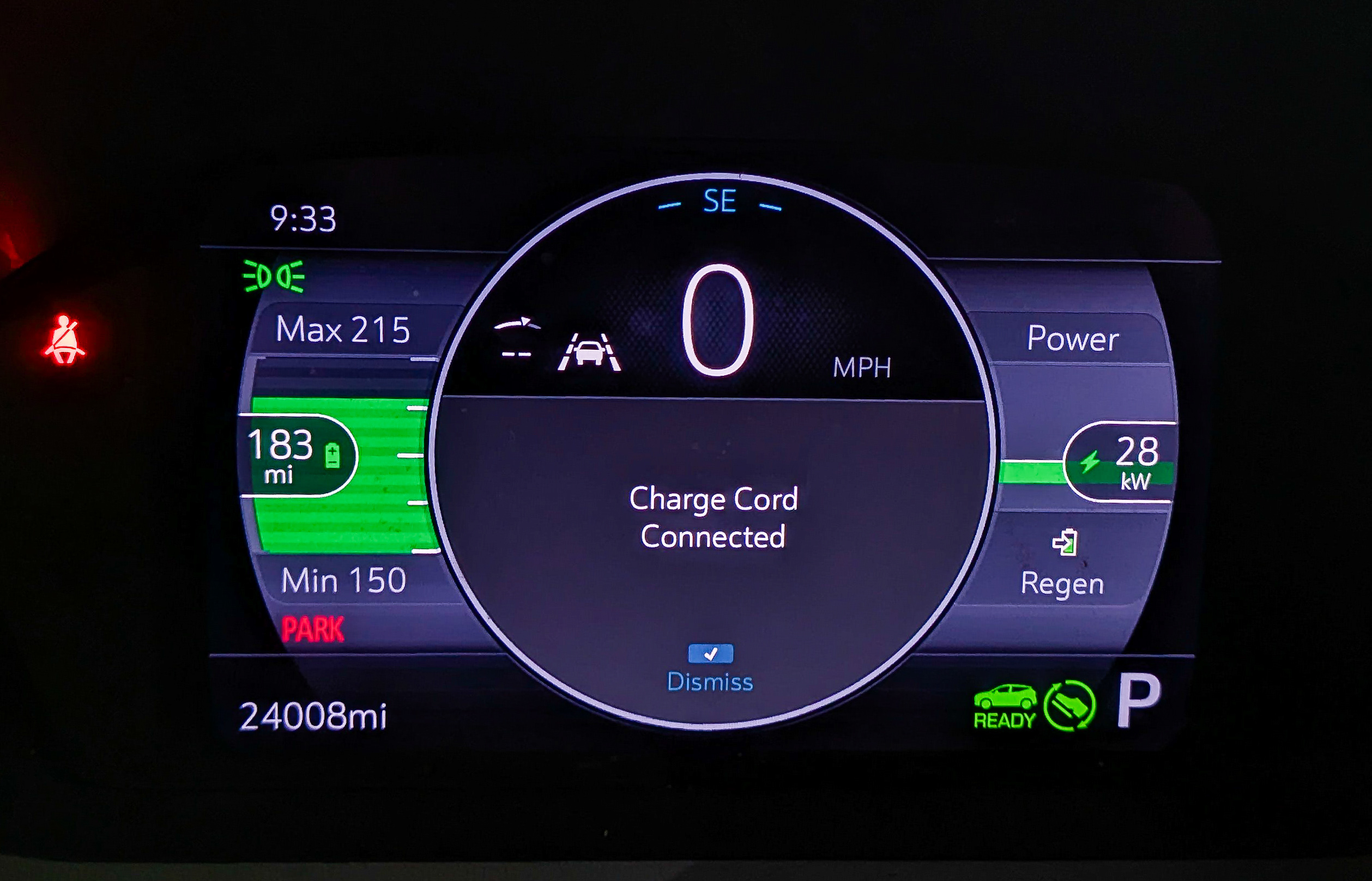Sign up for daily news updates from CleanTechnica on email. Or follow us on Google News!
A regular feature of my life is having long-term friends, co-workers, collaborators and even complete strangers reach out to me to ask how they can pivot or start their careers to help with climate change or the environment more generally. Most recently, a recent sciences graduate from Cambridge, Hari Kukreja and I spent an hour talking, and I realized that my guidance had changed over the years, so I thought it was worth writing down and sharing a bit more broadly.
First, a bit of history. About three decades ago, I was asking the same question. I was passionate about environmental concerns. I voted for NAFTA as I believed, and still believe, that globalization and greater trade across nations were fundamental to addressing the Malthusian risks we were facing. I’d read Brundtland’s Our Common Future, and I knew bring the impoverished globally out of that economic state was an essential part of reducing population growth and hence critical to sustainability. (If you feel an urge to argue with this thesis, please read my full thoughts in the article Globalization is essential to sustainability.) I was dabbling with vegetarianism, carless, biking everywhere and frequently being the killjoy judgmental guy we’ve all known and learned to avoid.
Like a lot of people, Maslow’s Hierarchy of Needs had to be satisfied before I could do anything else. My 20s were spent getting an education in something practical, getting a couple of jobs and generally turning into a basic adult with a roof over his head, something that wasn’t guaranteed with a trust fund or even much ability from my folks to assist even in minor financial ways. No silver spoons, I grew up with Melmac dishes, roast Spam on Sundays and all the fresh fish we could catch and fry. There were a tremendous number of good things about my upbringing — ten countries by the time I was ten years old, even if all of that time was spent in military housing — but it didn’t lead to my parents having the financial wherewithal to fund a good degree and residence at University of Toronto.
But by the time I was 30, I’d managed to adult enough to be looking for self-actualization. I realized that while I was reasonably good at my day job as a software projects guy, steadily doing bigger, more complex projects and taking more responsibility, I wanted to do something that actually helped the planet, as opposed to the bank I was working for.
However, all environmentally focused jobs that I could identify didn’t pay remotely well, didn’t need the skills I had or would require radical changes to my preferred living conditions. I’d spent an awful lot of time crawling around in the bush and kind of liked white collar computer jobs in part because I had a real contrast. Also, it was clear to me that the things that made me a killjoy who people sometimes avoided, or at least avoided triggering on certain subjects, made me bad at creating the change I wanted.
So I stayed in tech, had a global career, working on as many next industry projects as I could find — solar in Japan, wind turbines in northern Quebec mines, weather prediction for renewables in Brazil, zero emissions mines in northern Ontario —, and tried over and over again to get my global tech giant firm to pay a lot more attention to where the ball was going to be rather than where the ball was stuck in a tarpit.
To be clear, lots of people at the same time carved out very lucrative and impactful careers in the economy of the future. They had the imagination, vision, traits and luck to make it work. Some wore hair shirts for a long time until all of a sudden what they’d been doing for a long time became what the world was doing and their experience, skills, contacts and knowledge paid off big time. My inability to see a path forward for myself into both doing good work for climate and the environment and not collapsing into an unhealthy, unhappy ruin due to other aspects of my five things was my failure of imagination and drive.
I returned to my primary passion around 15 years ago. Future-economy jobs were still light on the ground, but most of the examples I listed a couple of paragraphs ago came after that. Renewables started growing. Electric cars started growing. Grid storage started growing. Transmission started growing. Heat pumps became a thing in the west. The internet is integrated in our daily lives and collaboration across time zones is much easier.
And so, to mentoring. That’s something I’ve been doing regularly for a couple of decades. I had a lot of help figuring out how not to be as bad at things I was bad at and how to be better at things I was good at over my 20s and 30s (and even into my 40s). I was bad at asking for help and guidance, but thankfully I had a bunch of great bosses — thank you Amy, Donna, Sharon, René and others) — who were saddled with me and chose to invest time helping me enhance my strengths and get past my weaknesses. I had a lot of doors opened for me by people who helped me understand the opportunities that were there. And so, I’ve been giving back when asked and I have been asked a lot within the firm I used to work for and subsequently.
The two worlds have converged in probably predictable ways, but now my mentoring is different for people who want to make a difference, not just a living. It’s a lot more like the mentoring I did in the global tech giant of new hires and juniors who were trying to figure out how to best exploit the massive US-based corporation for maximum job satisfaction and, often, wages.
Let’s summarize the basics of the mentoring. Know your five things. Always be learning three things. Don’t close doors until the last possible moment.
By know your five things I mean figure out what is going to make you satisfied and eager to get up in the morning. I don’t like being in charge, I like being influential, for example. I like making an impact. I like working with diverse teams of bright people on projects. I need to have my brain engaged. Money is nice.
Everyone’s are different. One guy I mentored was very attached to his faith and congregation, hence was tied down geographically. Others have families that they are close to and unhappy if they are away from. One guy I worked with only took gigs in Vancouver in the summer time because Ultimate Frisbee was very important to him. Some people love 9-5, clear routines. Whatever the top five are, know your own. Judge opportunities by how much of each you will get, and see if you can thrive on the balance.
No gig will ever completely satisfy all five unless you are absurdly lucky.
You’ll note this isn’t “follow your passion”. This is find the intersection of your passion (maybe), Maslow’s needs and other things you need in your life to be happy and whole.
Always be learning three things means just that. Our grandparents or great grandparents lived in a world where their lives and opportunities were pretty much the same as their parents’. That was true for the vast majority of human history for the vast majority of people. For my generation, Gen X, most people had the same career for most of their lives and becoming redundant in their late 40s or 50s as the world changed out from under them came as a great shock.
I accidentally and luckily ended up in computers and software, which were constantly changing (and changing faster now), and with the traits necessary to adapt rapidly. I was in the 20% of Gen X that had to keep surfing the wave of the new.
One of those useful traits is that I always had around three lines of ongoing interest and enquiry underway. Over time, one of those interests intersected with something I wanted to have more of in my life, like a bigger salary, an opportunity overseas, or just a job change. And off I went on a new tangent. But I was fairly unusual.
Now I’m not. Now almost everyone has to reinvent themselves regularly because the world is changing faster than it used to. We’re moving at internet and globalization speed now, which means laggard economies are being dragged up to China-speed, the mix of skills required to thrive is changing and in some ways expanding and we have more and more force-leveraging tools that we can draw on to create value.
Now 80% of people have to live the career I accidentally did. That’s challenging for many. But nowadays, keep learning and thrive, or don’t learn and start drifting downstream until rapids or a waterfall suck you under.
Finally, don’t close doors until the last possible moment. Throughout our lives, doors open, by accident, by random luck, because someone we are acquainted with opens them, or for some people, because they force them open. For a lot of us, content in our momentary period of calm and stability, or insecure about our ability to adapt, we close the doors without looking through them. We just say, no thanks, and move on. (For con artists, telemarketers and Bible thumpers, closing the doors in their faces is still good advice.)
But you just don’t know what’s behind a door and whether it’s actually going to increase some of your five things or not until you look. Maybe it’s more salary, but you are working with people who are really boring (happened to me, not because my co-workers were stupid, but because they’d all self-selected to be stock market types and only talked about money, not anything behind the money). Maybe it will drop your family time, but tick off three other boxes so you’ll be happier when at home. Maybe it will just get you out of a gig that’s going to be swept under by the winds of change.
Maybe, and this is important, this will lead to doors that are much more tightly coupled to the work you really want to be doing. Taking a gig because of the gigs it opens up is going to be part of the trajectory of everyone’s lives.
And finally, we all live in the world we live in. The vast majority of us have to earn a paycheck so we can keep a roof over our family’s heads and food on the table. There’s zero shame or harm in doing a gig that delivers those fundamental value propositions for a while as you learn three things, find the intersection with money and walk through one of the doors that opens.
There’s more that’s specific to the mentoring relationship, but that’s the heart of what I consider worthwhile sharing with people when they ask.
Let’s put this in context of the most common question I get these days, which is how do I do more professionally to fix the climate crisis. I used to say to people that there was lots of work in the space, but you had to be willing to travel, and maybe put up with lower salaries. That’s no longer true.
Think about all the things in the electric vehicle value chain, from financing, to materials, to software, to manufacturing, to sales, to maintenance, to EV chargers. Think about all the things in the solar value chain, from financing, to materials, to software, to manufacturing, to sales, to utility-scale deployments, to commercial and residential solar. Think about all the things in the heat pump value chain in the same way. Think about industrial heat electrification.
Where ever anyone lives already, there are is a tremendous amount of lucrative work to be done electrifying and decarbonizing what’s there. Where ever anyone wants to live — barring people who like the idea of mountain top or Montana cabin hermit life — there’s low-carbon transformation work to do.
If you love commercial law, you can have an entire career doing commercial law almost entirely in climate friendly businesses. Ditto financing. Ditto human resources. Ditto electronics. Ditto writing software. Ditto chemical engineering. Ditto manufacturing. Ditto robotics. Ditto AI. Ditto analysis. Ditto construction. Ditto HVAC. Ditto investing. Ditto agriculture. Ditto forestry. All of the types of work that some people love and are good at are now hiring in the low-carbon future part of the economy.
There are still people who are a bit stuck, especially in oil country. I’ve spoken to a number of Albertans and Texans whose only opportunity to keep a roof overhead and food on the table involved the fossil fuel industry. No shame in that. Most of us are like me, zero trust funds in our finances and parents who could provide the basics, but not Harvard or Yale educations. I dipped in and out of the IT side of the industry myself.
I’ve spoken to innumerable people who did their time in the industry of the past on their way to industries of the future. I spoke this week with the head of the Global Carbon Project, and he did his time in petrochemicals at the beginning of a long career that’s been incredibly beneficial for the climate. The head of decarbonization for Maersk’s transshipment terminal ports, who I speak with regularly, worked offshore oil platforms in ASEAN. The guy who founded and runs America’s biggest drone crop spraying company — displacing diesel tractors, maximizing yields, minimizing product waste and running on electricity — did a stint in the gas fields. Journeys aren’t straight paths any more, if they ever were.
Know your five things. Always be learning three things. Don’t close doors that open for you until you’ve looked through them thoroughly and learned that they don’t lead to a stepping stone to a life that improves the world and your place in it.
Harki Kukreja is going to do fine. He has a STEM degree from Cambridge, so he has a serious credential that will open a lot of doors and he knows how to look at the world’s physical reality and avoid a lot of dead ends. He’s co-president of the Cambridge University Energy Technology Society (CUETS), so he’s focusing and networking in the future industrial economy already. Clearly, he’s willing to knock on doors himself, as that’s why I spent a bit of time with him, and speaking as someone who sucks at knocking on doors for a variety of not particularly flattering character traits, that means he can do business development and sales roles.
He’s captain of the top-level Cambridge cricket team, the Blues, after being on the national under-19 team for Singapore prior to heading to the UK for school. That means that he’s already learned how to play on teams and at least the basics of leadership, as well as having a strong competitive spirit. He knows South East Asia and Europe, at least a bit, and is clearly comfortable in both. Last, he’s not doing bad at figuring out his five things and prioritizing his life around them, including having a positive impact on the planet. Seriously, anyone reading this who has a clean economy role should reach out to Hari to see if he’s a fit. Open a door for him.
For every one else who is starting their career or feeling a bit stuck and envying the people who are working in rewarding roles delivering the low-carbon solutions of the future, here’s a call to action. Figure out your five things. Look at what things you are learning and if you aren’t learning, start. Look for open doors, and maybe even, like Hari, knock on doors that might open.

Have a tip for CleanTechnica? Want to advertise? Want to suggest a guest for our CleanTech Talk podcast? Contact us here.
Latest CleanTechnica.TV Videos
CleanTechnica uses affiliate links. See our policy here.
CleanTechnica’s Comment Policy





